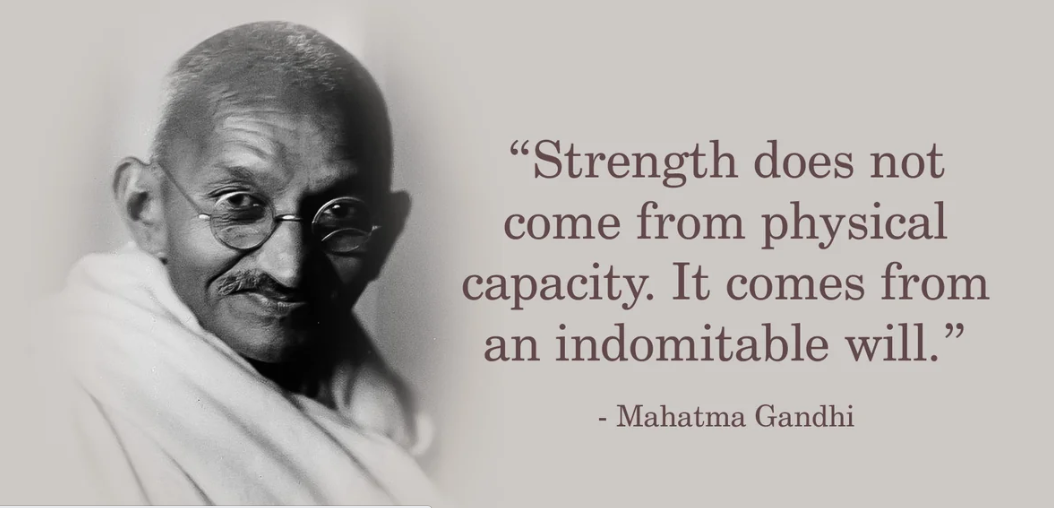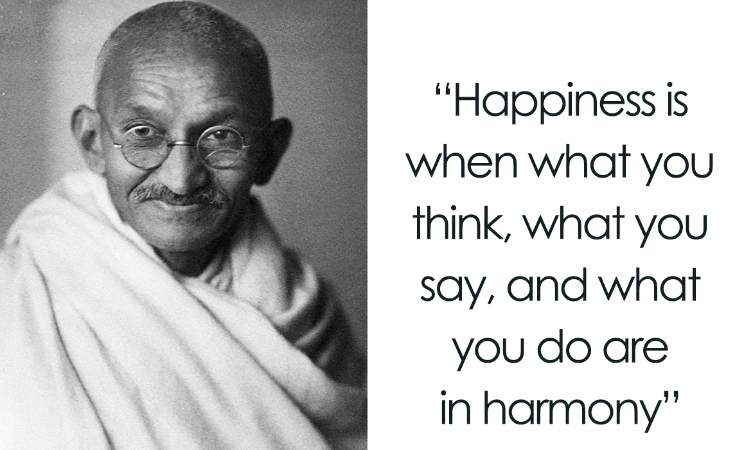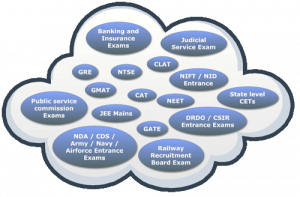Best Books to Read in 2023
Best Books to Read in 2023 Are you a bookworm or a bibliophile, if yes, then this is the ...
One of history’s most significant characters, Mahatma Gandhi led India’s freedom struggle and was a philosopher whose thoughts echo worldwide. Gandhiji’s ideology and key ideas may influence contemporary education beyond his involvement in the independence movement.

This article examines how Gandhiji’s ten key principles may lead to a more holistic and values-driven approach to education that fosters compassion, responsibility, and ethics In this comprehensive article, we will delve into how Mahatma Gandhiji’s ten core principles can reshape and enrich modern education, fostering a holistic approach that transcends rote learning and standardized testing.
Also, read 10 Indian Women Engineers and Scientists inspiring Future Generations
Mahatma Gandhiji’s principles of non-violence (ahimsa), truth (satya), self-discipline (brahmacharya), non-stealing (asteya), non-possession (aparigraha), physical labor (sharirashrama), control of palate (asvada), fearlessness (abhaya), equal respect for all religions (sarva-dharma-samanatva), and duty towards the neighbor (swadeshi) provide a comprehensive framework for ethical living and holistic education.
Now, let’s explore how these principles can benefit today’s education system

Gandhiji’s nonviolence stays relevant now as it did during Indian independence. It requires schools to prioritise non-violence in all its manifestations, including physical, verbal, and emotional hostility.
Modern education often accentuates competition, leading to stress, anxiety, and bullying among students. By embracing Gandhiji’s philosophy of non-violence, we can cultivate an environment steeped in mutual respect, empathy, and conflict resolution. Educational institutions can introduce programs that promote emotional intelligence, mindfulness, and peaceful communication, equipping students with tools to build harmonious communities both within and beyond the classroom.
In an age characterized by misinformation and deception, Gandhiji’s emphasis on truth and honesty holds immense value for education. The pursuit of knowledge must always be accompanied by a commitment to truth, not just in academics but also in personal character.
Modern education should prioritize the development of moral integrity alongside intellectual growth. Students should be encouraged to uphold truthfulness, academic honesty, and the significance of ethical conduct. Schools and colleges can institute honour codes and integrity workshops to inculcate these values in students, preparing them for a future where honesty and authenticity are highly esteemed.
Gandhiji’s teachings on forgiveness are particularly pertinent in today’s high-pressure education system. Students encounter academic challenges, peer conflicts, and personal setbacks that can result in stress and anxiety. By teaching forgiveness as a means to release grudges and heal emotional wounds, educators can promote emotional well-being and resilience.
Incorporating forgiveness into the educational curriculum involves discussing real-life instances of individuals who have forgiven others in the face of adversity. By showcasing the power of forgiveness, students can learn to let go of negative emotions, foster empathy, and cultivate healthier relationships.
Mahatma Gandhiji’s perseverance in the face of enormous odds inspires young people today. In a world that prioritises rapid satisfaction, patience is key to long-term success.
Education should encourage students to embrace challenges and perceive failures as opportunities for growth. Gandhiji’s renowned quote, “It always seems impossible until it is done,” can inspire students to persist in their endeavours, be they academic, personal, or professional. Schools can promote a growth mindset, wherein effort and resilience are celebrated more than mere accomplishments.
Gandhiji’s focus on self-awareness and mindfulness is beneficial in contemporary education. Students often find it challenging to maintain focus and stay grounded due to the abundance of digital distractions and the constant flow of information.

Students may improve self-awareness, emotional management, and attentiveness by practising mindfulness every day. To increase student participation well-being and cognitive ability, meditation, deep breathing, and mindful walking can possibly be emphasised.
In an era replete with distractions and temptations, cultivating self-discipline is essential for academic success. Gandhiji’s principle of self-discipline advocates mastery over one’s senses and desires.
Educators can encourage students to practice self-control in managing their time, technology use, and study habits. By setting clear goals and adhering to a disciplined routine, students can achieve greater academic proficiency and personal growth.
Also, read 10 Best Books to Ace the CAT 2023
In educational contexts, non-stealing aligns with the concept of academic integrity. Gandhiji’s principle urges us not to appropriate what rightfully belongs to others. In academic settings, this translates to respecting the intellectual property of others and refraining from plagiarism.
Educational institutions should uphold stringent standards of academic integrity and provide resources and guidance on proper citation and research ethics. By instilling the value of non-stealing, we nurture a culture of honesty and respect for knowledge.
Gandhi’s philosophy of non-possession promotes a simple lifestyle free from excessive materialism. In the realm of education, this principle promotes the prioritisation of knowledge and skills over material possessions.
Educational programmes can promote minimalism by prioritising knowledge over material wealth. Educational programs can promote minimalism by emphasizing the importance of knowledge over material wealth. Students can be encouraged to donate unused belongings, participate in community service, and develop contentment with what they have.
Swadeshi, or the duty towards one’s neighbour, underscores the significance of supporting local communities and industries. In modern education, this principle can inspire students to engage meaningfully with their communities.

Educators can facilitate community service projects, field trips to local businesses, and collaborations with nearby organizations. By connecting students with their immediate surroundings, education becomes a tool for building strong, supportive communities.
Gandhiji’s unwavering commitment to religious pluralism calls for educational institutions
Curriculum content should reflect this principle by incorporating the study of various religions and promoting interfaith dialogue. By fostering inclusivity and religious tolerance, schools and colleges contribute to the development of well-rounded, culturally aware individuals.
To fully integrate Gandhiji’s teachings into modern education, educational institutions can take the following steps:

We finish our exploration of Mahatma Gandhiji’s 10 key principles and their possible influence on education with the realisation that his wisdom is still applicable today. Non-violence, honesty, forgiveness, self-discipline, and other virtues are not simply historical relics but everlasting guides for constructing a more peaceful and equitable society via education.
In an age of fast change and technological developments, comprehensive education that fosters character and values is essential. Gandhiji’s values give a strong basis for a system that teaches knowledge, empathy, compassion, and social responsibility. We may prepare future generations to be knowledgeable and ethical leaders who can tackle our complicated problems with intelligence and integrity by integrating these ideas into school curricula and practises. Mahatma Gandhiji’s legacy reminds us that education prepares students for life as caring, responsible, and principled global citizens who may improve our planet.
Also, read Crack the UPSC Interview: Ace 10 Tough Questions with Best Responses
Meet Tanu Bhatnagar, an educational expert with extensive experience in teaching, research and mentoring.With a decade in... (Full bio)

Best Books to Read in 2023 Are you a bookworm or a bibliophile, if yes, then this is the ...

In the exhilarating journey of 10 Proven Memorize Techniques for Students learning, memory is your trusty companion. Whether ...

Top 20 toughest exams in world is about exams in the world that required very hard work to ...

Top 20 toughest exams in India - Exams are the perhaps most toughest moments for any student. A ...

Top 20 Colleges of DU Getting admissions to the top 20 colleges of DU is a dream for every ...

Top 20 NITs of India - Amongst the 31 NITs in India, today, we are talking ...

Here are the Top 12 Artificial Intelligence in Mumbai. Artificial intelligence (AI) refers to the simulation of human ...

As you stand on the Best Science Courses after 12th academic journey, the realm of science beckons, offering ...
Millions of students have entrusted CollegeChalo to facilitate their seamless and smooth admission process to their dream colleges and universities. With CollegeChalo, you can gain a competitive edge by easily accessing exam and course details to stay ahead of the admission journey. What are you waiting for?
Search your dream college